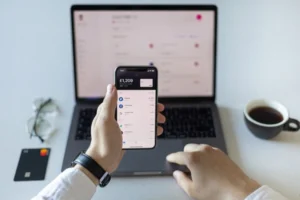Every year, when it comes time to file your tax return, the same question arises: which business expenses can you actually deduct? There is sometimes a gap between what you think you can claim and what the tax authorities will accept… and some surprises.
However, knowing the rules on deductible expenses means taking full advantage of the legal tax benefits and optimising your tax burden — without taking unnecessary risks. Whether you are an employee, self-employed, a freelancer or a company director, there are a multitude of expenses that you can claim, provided they are justified, necessary and comply with the tax authorities’ requirements.
In this article, we help you sort out the myths from the tax reality: from the most common expenses to the sometimes little-known deductions, you will discover what you can (really) claim and how to do it properly.
What is a deductible business expense?
A deductible business expense is an expense incurred in the course of your professional activity that can be subtracted from your taxable income. In other words, these are expenses necessary for the performance of your job that the tax authorities agree not to consider as personal income.
To be deductible, an expense must meet three main conditions:
It must be justified: you must be able to provide clear proof of the expense (invoice, expense report, receipt, etc.).
It must be professional: the expense must be related to your business. A meal with friends or a holiday cannot be deducted, even if you briefly discuss work.
It must be reasonable: the amounts must be consistent with the reality of your business. The authorities may refuse to accept an expense that they deem excessive or unjustified.
Simple example:
A freelance graphic designer can deduct the purchase of a new computer used for their work. However, a luxury handbag will not be considered a work tool, even if it is used to carry a laptop.
Conditions for a charge to be accepted
Simply declaring an expense is not enough to make it automatically deductible. For the tax authorities to accept it, it must meet several strict criteria, some of which are not widely known. Here are the main conditions that must be met:
Direct link to professional activity
The expense must be essential or useful for the performance of your job. This means that it must not be primarily for personal use. Examples include travelling to meet a client, purchasing office supplies, or renting a workspace. On the other hand, dinner with friends or a gym membership have no direct professional justification (except in very specific cases).
Required supporting documents
Without an invoice, expense report or proof of payment, an expense may be rejected during an audit. The burden of proof lies with you. It is therefore essential to keep your supporting documents for at least 7 years, either in paper or digital format.
Tip: systematically scan your supporting documents as soon as you receive them to avoid losing them.
Reasonable and proportionate amounts
An expense may be genuine… but exaggerated. If you deduct a daily meal at €200, or a luxury car used 10% for work, the authorities may reclassify all or part of the expense as a personal benefit, and therefore non-deductible. It is therefore always best to document and justify the professional proportion of your expenses.
Non-reimbursement by a third party
If an employer or client already reimburses you for an expense, you cannot deduct it. Similarly, in the case of a benefit in kind (e.g. company accommodation or a company car), the expense is considered to be already covered.
In summary: for an expense to be accepted, it must be related to your activity, justified, proportionate, and not covered by someone else. Rigorous management of your expenses is your best protection in the event of a tax audit.

Less well-known but definitely deductible expenses
In addition to standard expenses, there are many less obvious costs that you can legally deduct, provided you meet certain conditions. These costs are sometimes overlooked, yet they can represent an attractive tax opportunity to reduce your tax bill.
Continuing education and retraining costs
Even if you are already working, any training related to improving or developing your professional activity can be deducted:
– Online courses
– Professional coaching
– Specialised seminars
It must be directly related to your profession (not a radical change to another sector, except in the case of self-employed people).
Mixed digital devices
A smartphone, tablet or computer used partially for work can be deducted on a pro rata basis according to its professional use. Example: if you use your phone 60% of the time for work, you can deduct 60% of its cost and subscription.
Domain name and website hosting
If you have a showcase website, a professional blog or an online store:
- The domain name
- Hosting fees
- Subscriptions to SEO, CRM and CMS tools are deductible as communication and visibility expenses.
Travel expenses related to professional events
- Participation in trade shows, conferences or fairs
- Hotel, meals, transport related to these eventsProvided that participation is genuinely motivated by professional reasons (monitoring, prospecting, representation, etc.).
Specialised workwear
Mandatory work attire that cannot be reused for personal purposes (uniforms, lab coats, safety shoes, etc.) may be deducted.
However, a suit or ‘elegant’ attire is not deductible, even if worn for professional appointments.
Gifts and entertainment expenses
- Small gifts for customers or partners (be mindful of tax limits)
- Greeting cards, promotional items, advertising materialsThese expenses must remain reasonable and be linked to a clear business strategy.Although less visible, these expenses can make a difference to your tax liability. They also highlight the importance of keeping careful records of every expense, no matter how small.

Conclusion
Declaring your professional expenses is not an option, it is an opportunity. However, you need to know what is actually deductible, how to prove it, and above all, how to avoid common mistakes that can be costly. Rigorous and well-informed management not only reduces your tax burden, but also helps you better manage your daily activities.
At My Nurse Expert, the fiduciary service dedicated entirely to independent nurses, we understand your specific needs: atypical working hours, frequent travel, healthcare equipment, double billing, etc. Thanks to our simple, intuitive app tailored to your profession, you can manage your expenses, receipts and accounting with complete peace of mind.
Save time, avoid oversights and optimise your tax situation today with the friendly and professional support of My Nurse Expert.
Download the app or make an appointment with an expert to review your deductible expenses and your accounting situation.
